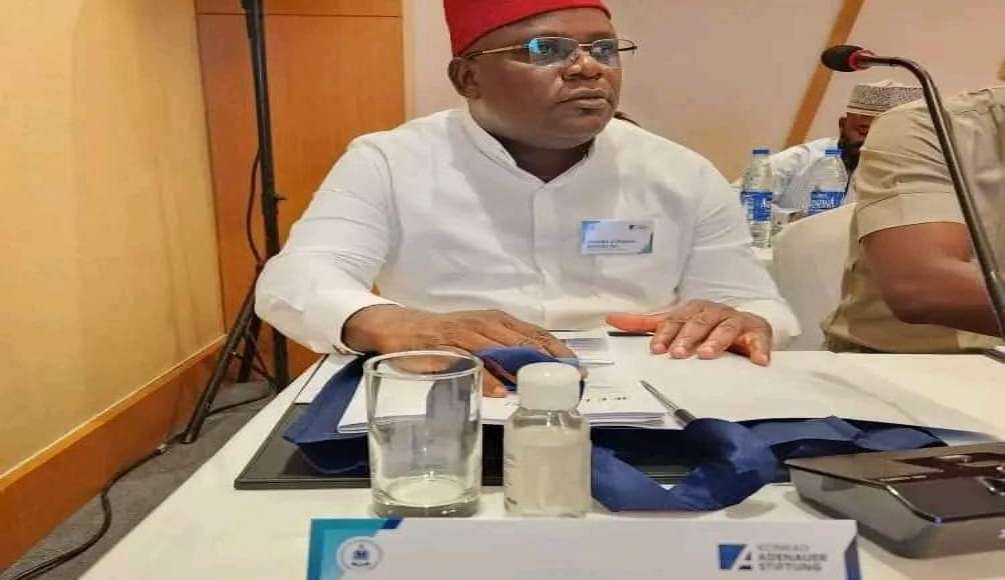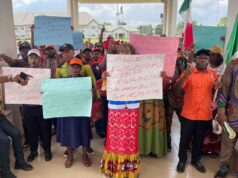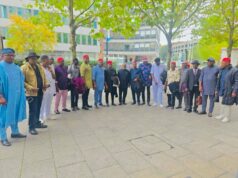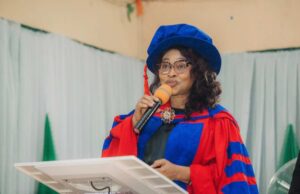A member of Abia State House of Assembly, Hon. Erondu Uchenna Erondu Jnr. has assured that he is committed to effectively serving the people of his constituents and Abians in general through quality legislation in the House.
The newly sworn-in lawmaker representing Obingwa-West constituency reiterated that the constitution of the Federal Republic of Nigeria (1999) as amended accords the concept of separation of powers to be practiced among the three arms of government, assuring the people of the state of his readiness to serve.
He made this known in Uyo on Monday during an induction workshop for members of the Abia State House of Assembly, organized by the National Institute for Legislative and Democratic Studies (NILDS) in collaboration with Konrad Adenauer Stiftung.
READ ALSO: G7 PDP Officials Join APC In Imo
He said he would enthrone and deepen democracy, rule of law, human rights, and good governance as well as grant freedom as enshrined in the 1999 Nigerian constitution as amended if the doctrine of separation of powers and its inherent checks and balances are properly observed and practiced at all levels of governments.
He maintained that the theory and practice of separation of powers and checks and balances is the most veritable context in which the Judiciary can perform its constitutional responsibility of stabilizing the political system, thus, achieving sustainable democracy and good governance in Nigeria and at state government levels.
He noted that by the constitution of the federal republic of Nigeria (1999) as amended, no arm of government is supreme or immune from checks and balances by the other arms, explaining that it is in line with the doctrine of separation of powers as espoused by Baron de Montesquieu in his timeless treaties; known as ‘the Spirit of the Laws’.
He maintained that the constitution supremacy clause, gives the federal laws primacy over state laws; adding that where the constitution is silent on which of the government have the power to legislate on a matter, the power is deemed residual in the state governments.
Erondu further highlighted that on the horizontal dimension, the Executive, Legislature, and Judiciary check each other.
He also thanked his constituents for the confidence reposed in him to serve them at the 8th Abia Assembly, adding that he would not disappoint them.
The workshop featured an opening address by Director-General, NILDS, Prof. Abubakar O. Sulaiman, and the keynote lecture was taken by an Associate Professor of Economic History, Obafemi Awolowo University, Ile-Ife, Nigeria, Dr. Adetunji Ogunyemi while other Abia lawmakers attended the workshop.










